With over 5.3 billion internet users today, businesses of all sizes rely on agencies to harness the power of digital marketing and propel them towards their objectives.
According to Statista, the demand for digital advertising has skyrocketed and is expected to reach $740.3 billion this year.
But what does this mean to the owners behind these agencies?
This guide will break down an agency owner’s numbers and average salary. We shall also explore factors that might influence their earning potential.
TL;DR – How Much Can a Digital Marketing Agency Make?
As an agency owner, one of the biggest questions on your mind might be, ‘How much do marketing agency owners make?
While there is no one-size-fits-all answer, the average combined agency owner’s salary in the United States is around $242k.
However, this figure can vary widely depending on a range of factors.
Find out more below.
 4 Factors Influencing Marketing Agency Owner Salaries
4 Factors Influencing Marketing Agency Owner Salaries
Unfortunately, most agency owners aren’t paying themselves enough. Sometimes, it’s because they undercharge their services.
Our Prospecting On Demand mentorship programs are tailored to help agency owners like you set competitive prices 3X higher and retain clients 5X more — ultimately maximizing their earning potential.
Besides undercharging, other factors might influence your agency salary. Let’s talk about them below.
1. Experience and Expertise
It’s a no-brainer — an agency owner with years of expertise and a record of successful client results will command higher pay.
Ultimately, they will generate more revenue for the agencies and compensate themselves more.
2. Size of the Agency
The size of your agency will impact the marketing agency owner’s salary.
A large-sized agency has multiple clients and offers a wide range of services that generate higher profits and subsequently increase the agency owner’s income.
3. Specialized Services or Niche Industries
Agencies that offer specialized services attract high-paying clients looking for niche-specific marketing services.
For example, an agency well-versed in finance or healthcare may charge more than one that serves general clients.
Also, an agency owner that has niched down to a particular area like web design or SEO might charge more than a one-stop agency offering all marketing services.
4. Geographic Location
A digital marketing agency owner’s salary tends to vary from city to city. Operating your agency in the most expensive states will cost more, but you’ll also likely command larger budgets from global firms in these states.
Besides, the region you operate in will influence expenses like office space costs, incorporation fees, and corporate income tax rates. You’re likely to adjust your take-home pay up or down to cover these expenses.
How Does a Digital Marketing Agency Make Money?
An agency’s compensation depends on its services, the scope of work, or duration.
Agency owners can sell service packages — web design, content marketing, search engine optimization (SEO), social media marketing, email marketing, pay-per-click (PPC) advertising, and more — at various prices.
Alternatively, they can offer consultation services, evaluate clients’ needs, and create individualized pricing.
They can charge their clients for the services on a fixed fee every month (retainer) or a flat fee for each project. Other common pricing models are package-based and result-based models.
Once your agency makes money, you must know how to pay yourself.
 How to Pay Yourself as a Marketing Agency Owner
How to Pay Yourself as a Marketing Agency Owner
Paying yourself can feel like a tug-of-war between your personal needs and the needs of your business.
First up, you must consider the ways you can pay yourself.
Salary
You can pay yourself a regular salary just as you do an employee of your agency. Taxes are deducted upfront from your paycheck.
Remember, your salary has to follow the IRS reasonable compensation rule even when your business is bad. Also, this compensation method is recommended for S Corp and C Corp agency owners.
Example: You’re the owner of an S Corp marketing agency. You set a fixed monthly salary for yourself of $5,000, processed through payroll with taxes deducted, ensuring it complies with the IRS’s reasonable compensation rule.
Owner’s Draw
An alternative method is to pay yourself directly from the business profits when needed or at regular intervals. An owner’s draw can also be referred to as dividends or distributions of the shared profits.
Remember that this method mostly applies to LLCs, partnerships, and sole proprietorship agencies.
Also, you aren’t required to pay taxes upfront for every amount you draw, but you must budget for the yearly tax bill.
Example: As a sole proprietor of a marketing agency, you take a $10,000 draw from the profits after a profitable quarter. This amount is not taxed immediately, but you plan for the annual tax bill.
Bonus Structure
Regardless of the payment method you choose to take your bulk compensation out of your business, you should have a structure to reward yourself for excellent performance.
Remember, the bonuses you pay yourself should be related to the results you’ve achieved based on your work at your agency.
Example: Running an LLC marketing agency, you award yourself a $15,000 year-end bonus due to exceeding performance targets and your regular compensation method.
Benefits and Perks
As a business owner, you can view benefits as compensation to yourself. Alternatively, you could pay yourself through rewards and incentives on top of your salary.
Example: You can provide yourself with benefits, such as health insurance, dental plans, and retirement savings.
If you exceed your target or over-deliver, you could reward yourself with paid vacation time and travel perks.
Reimbursements
Another way to pay yourself is to reimburse expenses from the business account to your personal account.
It’s crucial to put a policy spelling out reimbursement expenses and to keep the proper documentation. The reimbursement policy should also comply with IRS guidelines.
Example: You can reimburse yourself for travel-related expenses — airfare, transportation costs, car rental costs, and more — you incur for business purposes.
 How Much Should a Business Owner Pay Themselves?
How Much Should a Business Owner Pay Themselves?
Once you decide how to pay yourself, you must pick an amount. On the low end, a small business owner might earn an average salary of $69,119 annually.
However, many owners make up to $242k when the salary is combined with dividends, draws, bonuses, and other compensations.
Overall, there’s no limit to how much you can pay yourself. It can hit $500,000 (or even more). As you grow your agency, you can increase your income.
If you found this section helpful, join our free Facebook group to learn more in-depth marketing insights and smart pricing strategies to build a successful agency.
Think of it like chatting with friends — only those friends are like-minded entrepreneurs and agency owners.
Situations Where Withdraws Might Vary
Whether it’s a draw, dividend, or SMMA salary, paying yourself will depend on some practical situations. Let’s check some of them.
- The Stage of Your Agency: In the early stages of your business, you’re likely to take no salary. When your agency is on a stronger footing, you can get a good sense of the operating costs and factor in paying yourself.
- Co-owners: You and your co-owner(s) are often the top-paid people in the agency. More partners mean more compensation for the agency ownership.
That means if you overpay the business partner(s), there would be less money to pay everyone else working at the agency.
- Agency Revenue: You might afford to pay yourself more if your business is doing great. In tough times, however, you might need to reduce your payments to help your business succeed.
- Personal Lifestyle: Some agency owners tend to pay themselves more to support their expenses, such as owning a second home or catering for a travel budget, while others are minimalists.
- Tax Purposes: You might pay yourself a relatively low salary to trim the tax bill, but there are limits to this method.
 Frequently Asked Questions (FAQs)
Frequently Asked Questions (FAQs)
Do you still have questions about how much you should make as an agency owner? Let’s answer some of the common ones.
How Much Does it Cost to Start a Marketing Agency?
According to SurferSEO, starting a marketing agency costs between $730 and $29,100. The exact cost would depend on your expenses.
Essential expenses include creating your agency’s website, renting an office space, purchasing office equipment, paying salaries and benefits, subscribing to digital marketing software and tools, paying for marketing and promotion, and catering for incorporation and legal costs.
What is the Success Rate of Marketing Agencies?
The short answer is the success rate of marketing agencies is high.
To reach over 5.35 billion internet users, brands are estimated to hit a digital advertising spend of 667 billion U.S. dollars in 2024.
This tells us two things. Firstly, there are a lot of potential customers, and the demand for marketing services is growing at a rapid pace. Secondly, there’s room to make money as an agency owner by capitalizing on the digital skills on demand.
Can You Start a Marketing Agency Alone?
Absolutely! You can start a marketing agency on your own.
However, you must possess the skills, drive, and commitment to build a profitable business. Also, you’ll be the brains and hands of your agency — from managing client relationships to creating marketing campaigns and delivering results.
However, building a team of marketing professionals who can realize the clients’ objectives can be a game-changer.
How Much Profit Should a Marketing Agency Make?
The average digital marketing agency’s profit margin is around 10% to 15% in the United States. What does this metric mean?
If you’re on the lower side of this average — making less than 10% profit, you probably need to up your game to keep up with the digital industry. And if you’re on the higher side, it’s a positive sign that your agency is doing great.
Conclusion
There you have it! While there’s no easy answer to an agency owner’s salary, this guide can give you an idea of what to expect.
If you want to earn more from your agency, enroll in Prospecting On Demand’s training programs. We will help you implement effective strategies to retain long-term clients and seize pricing opportunities to maximize your revenue.
We have helped over 150 business owners build and scale agencies to 7-figure assets, and we can help you, too.
Schedule a free agency assessment today and take your agency to new heights.





